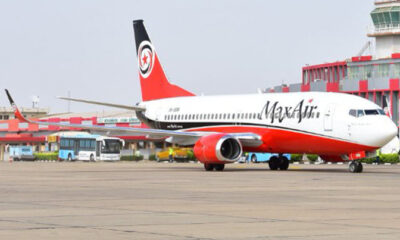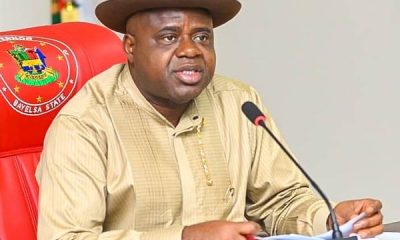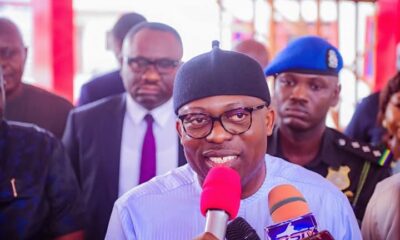Business
AfDB Approves $10m For W’African Emerging Market Fund
The Board of Directors of the African Development Bank (AfDB) Groups has approved $10 million investment in the West Africa Emerging Market Fund (WAEMF). The investment makes the AfDB one of the lead investors in the fund, at par with the CDC (Commonwealth Development Corporation) and the International Finance Corporation (IFC).
The WAEMF is sponsored by three well recognized institutional investors (Colina, NSIA and CNPS) and by Phoenix Capital Management (PCM, a local investment partner. Both (dina and NSIA are regional insurance companies from West African, while CNPS is the Ivorian National Pension Fund.
The fund targets the SME market and thus helps support non-public companies that demonstrate high growth potential, including in the financial services and infrastructure sectors. The fund will thus also contribute to government efforts to boost employment opportunities, increase GDP, and reduce poverty in line with the Millennium Development Goals.
The Bank Group’s participation in the fund plays a catalytic role by attracting other institutional investors to support the mobilization efforts of the sponsors to reach the target capitalisation of US $50 million. It will also send a positive signal to the market which will help attract long-term private investors to the region, and may lead to other co-financing opportunities with other Development Finance Institutions (DFIs).
“I am concerned that we have got banks that are spreading across different African countries and while we sign MOUs with other regulators, we don’t have an African framework for crossborder supervision”, he said, adding: “I think Nigerians, the South Africans, the Ghanains, the BCEAO (West African Central Bank), the Central African regulators can together build a framework that makes sure all banks that operate anywhere in Africa are closely regulated”.
Such framework would make it easier for Africa to deal with regulators such as Britain’s Financial Services Authority, the US Federal Reserve and China’s Central Bank, he said.
He noted that Nigerian banks have branches spread across Africa and that poses credit and market risks, as well as risks to the reputation of the country’s banking Industry as a whole.
The CBN last month injected N400 billion into five banks and sacked their chiefs, saying reckless lending and tax governance allowed them to become so weakly capitalized that they posed systematic risk.
The move by Sanusi, two months after he took office, sent shockwaves through the system as the apex bank listed some of the country’s biggest corporate names as bad debtors and pledged to recover the funds.
Sanusi said some N90 billion had so far been recovered while the EFCC has pressed criminal charges against four of the five bank chief executives, with the fifth outside the country and already declared wanted.
The bailout of Afribank, Finbank , Intercontinental Bank, Oceanic Bank and Union Bank came after an audit of 10 banks.
The regulator has finished auditing 11 more banks and is currently examining the final three namely Citibank, Stanbic IBTC and Standard Chartered.
The results are expected next month but the Central Bank has said that those 14 appear in better health.
Sanusi revealed that some banks have been told to make provisions and have enough capital and liquidity to do so, though others may be short of capital, but have no other issues, and will be given time to raise capital.
“There are banks that have temporary liquidity problems – they ‘ve got a mismatch in their balance sheets – and ones will get liquidity support”, he said.
Business
Tinubu’s RHI Doles Out N50m To 1,000 Kwara Petty Traders

Business
UBA To Educate SMEs, Business Owners On Withholding Tax

Business
Nigeria Losing $40b Annually From Maritime Sector – NIMENA
-
Business4 days ago
Aging Workforce May Erode Oil Industry Gains – NAPE
-

 Featured1 day ago
Featured1 day agoFG Suspends Max Air Operations For Three Months Over Kano Incident
-
Nation1 day ago
Rivers CP Eulogises LG Boss Over Donation Of Vehicles
-
Business3 days ago
NEITI Seeks Speedy Completion Of Refineries’ Rehabilitation
-
Politics1 day ago
Assembly Declares Lawmaker’s Seat Vacant Over Alleged Absenteeism
-
Business1 day ago
Aviation Stakeholders Raise Alarm Over NCAA Appointment Saga …Harp On Safety
-

 News4 days ago
News4 days agoBayelsa Confirms Cholera Outbreak
-

 Featured3 days ago
Featured3 days agoRSG Rolls Out Healthcare Programmes To Mark Fubara’s Birthday

